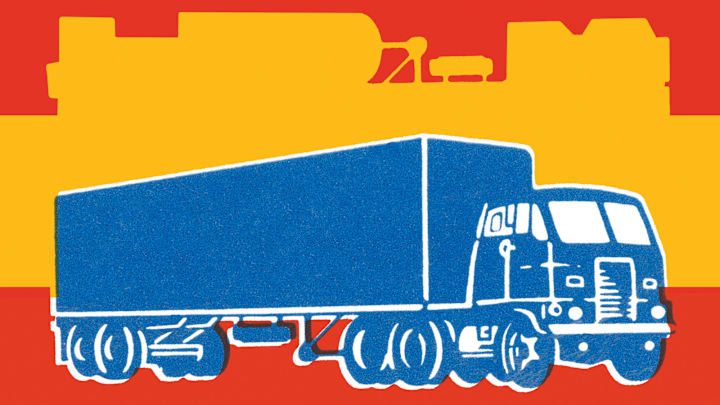Like any two dialects of a language, British English and American English have plenty of lexical variations. Sometimes, a word means something different in the U.S. than it does in the UK, as is the case with biscuit and jumper. And then there are terms that only really exist in one dialect or the other. Lorry is one of them.
What Is a Lorry?
Speakers of British English know a lorry to be a large, load-bearing vehicle—what American English speakers would refer to as a semi, an 18-wheeler, a tractor-trailer, or just a plain old truck. According to UK trucker blog Fleet Speak, some people think a vehicle’s cab and cargo unit need to be separate for it to qualify as a lorry, but that distinction doesn’t always hold in colloquial conversation.
Where Did the Term Lorry Come From?
Nobody’s totally certain how the word lorry came to be. But the leading theory, per the Oxford English Dictionary, is that it’s related to lurry, a verb dating back to the 17th century that means “to carry or drag along.” This is supported by the fact that when lorry first appeared in print during the mid-19th century, it was sometimes spelled lurry.
So if lorries (or lurries) were around before automobiles existed, what exactly were they? According to the OED, the term originally referred to “a long flat wagon without sides running on four low wheels.” By the early 20th century, motor vehicles had arrived, and lorry had evolved to describe a large one used to transport cargo.
